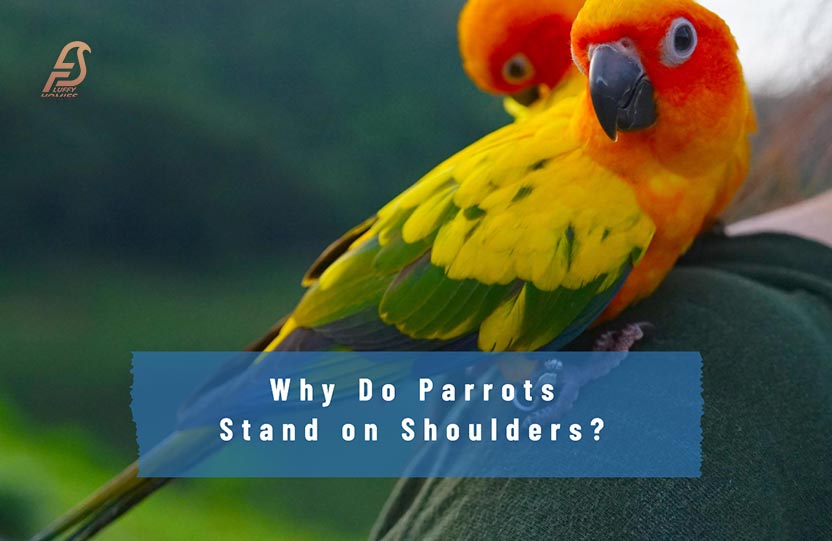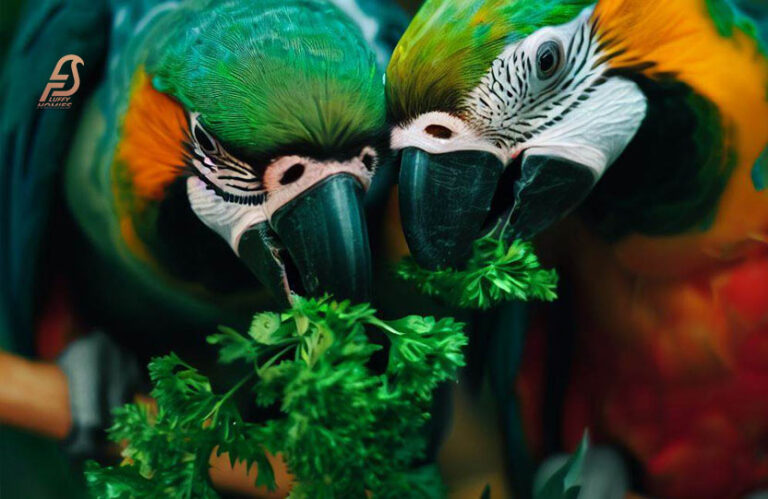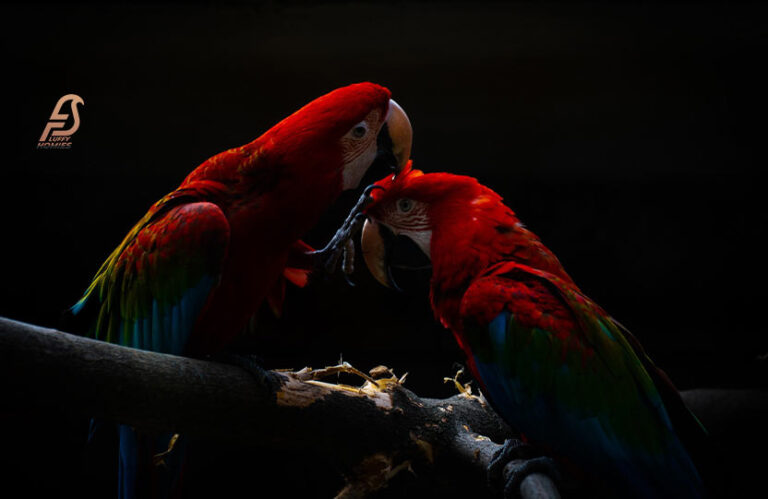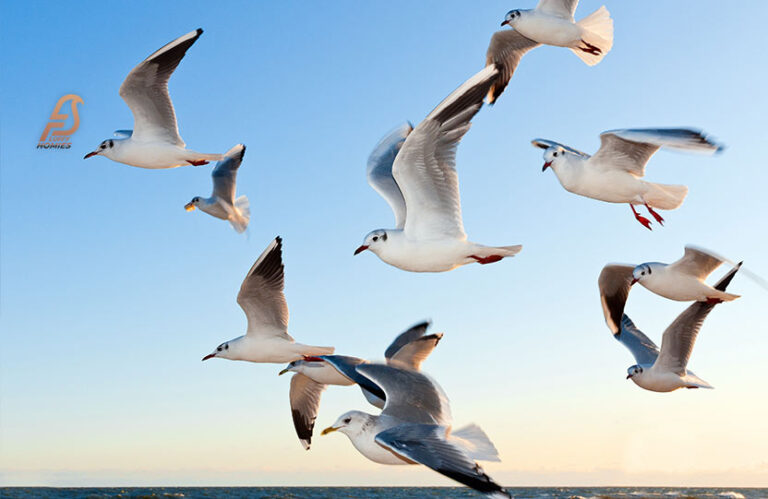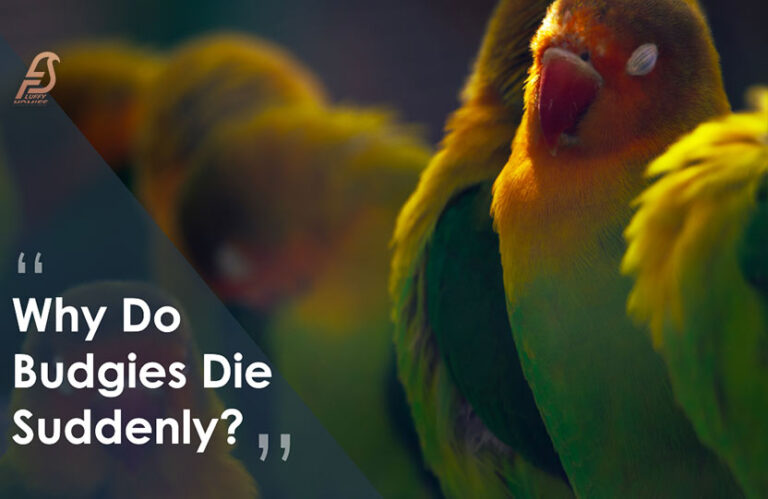Birds Perching Puzzles: Why Do Parrots Sit on Shoulders?
Parrots are known for their social nature and intelligence, which make them popular pets among bird enthusiasts.
They are also known for their ability to mimic human speech like birds talking in sleep, which adds to their charm.
If you are a parrot owner, you must have noticed your feathered friend’s tendency to stand on your shoulder.
The question that arises here is, why do parrots stand on shoulders? It is a behavior that has intrigued many pet owners, and the answer to this question may surprise you.
In this comprehensive guide, we’ll explore the reasons why parrots stand on shoulders and provide you with valuable insights into this behavior.
Why Do Parrots Stand on Shoulders?
There are many different reasons behind this best thing about parrots as follows:
Comfort
In flocks, parrots are social birds by nature. Each other, they use their beaks to groom and show affection.
Standing on his owner’s shoulder, the parrot mimics this behavior. Grooming indicates that the parrot considers its owner to be part of its social circle.
Perching on shoulders offers a bird’s-eye view, which parrots find appealing. At this height, they can survey the area and keep watch for potential threats.
In a human environment, the closest they can get to high branch perching is by perching on a shoulder. Birds also like to like to climb when they are happy.
Bonding
Shoulder standing is an indication of trust and fondness. Through this action, the parrot demonstrates its connection to its owner and sense of safety while being around them.
With its owner, a parrot says, “Trust and safety, I feel when on your shoulder.”
Being near its owner is made possible through shoulder perching. Perching on a shoulder enables parrots to get close to their owner and receive affection.
They can interact with their owner and enjoy their company, which strengthens the bond between them. If their is no bonding between you and the bird then your bird nibble on you.
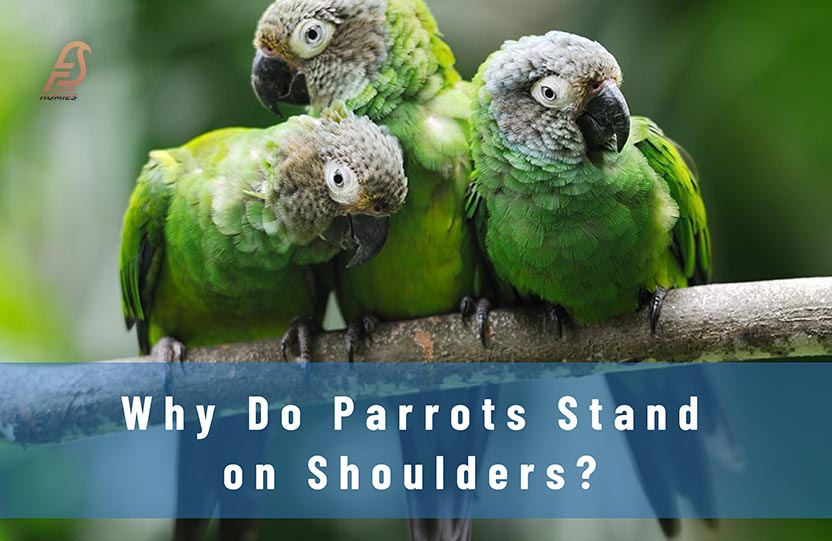
Seek Attention
Parrots are intelligent birds and crave mental stimulation. Standing on a shoulder allows them to interact with their owner and keep their minds active.
They can observe their owner’s actions, mimic their speech, and even help with tasks. For example, some parrots are trained to fetch items for their owners or turn lights on and off.
Perching on a shoulder also allows the parrot to be the center of attention. They love being the focus of their owner’s attention and will do whatever it takes to get it.
By perching on their owner’s shoulder, they are guaranteed to get attention and affection. If you not provide attention to your birds than parrots may bite you.
Communication
Perching on a shoulder grants parrots the ability to interact with their owners in a more personalized manner.
Ear whispering is just one of their talents; speech mimicry and kiss-giving come easily to them too.
On the shoulder, the parrot may communicate with its owner. Expressing emotions and desires through body language, they are able to.
To show affection, some parrots will nuzzle their heads against their owners and these birds wants that to be touched.
Owners frequently engage in cheek stroking and beak rubbing near their ears. Having a shoulder perch, the parrot gains proximity to the owner for more personal interactions.
Training
As a training tool, standing on a shoulder is a demonstration of trust and affection towards parrots.
Trust is the foundation for enabling a parrot to perch on your shoulder, reinforcing desirable actions. Training a parrot can be assisted by this.
Allowing one to train without hands, perching on a shoulder also enables. On your shoulder, you have the ability to train the parrot through hand gestures, to do tricks or exhibit particular behaviors.
A clicker can aid in training a bird, such as a parrot, by enabling it to see your hand gestures when situated on your shoulder.
Also Read: Why Won’t My Parakeet Drink Water?
Should You Let Your Parrot Sit on Your Shoulder?
Whether or not you should let your parrot sit on your shoulder depends on a few factors.
Temperament
First, it’s important to consider your parrot’s temperament. You can easily check it because birds feet becomes very hot in hot temperature.
Some parrots may become territorial and protective of their perch, which can lead to aggressive behavior towards anyone who comes too close.
In this case, it’s probably best to avoid letting your parrot sit on your shoulder.
Comfortable & Safe
Secondly, if you’re going to let your parrot sit on your shoulder, it’s important to make sure they’re comfortable and safe.
Parrots can be easily spooked, so make sure that your bird is well-trained and comfortable with perching on your shoulder before allowing it to do so.
Also, be mindful of any potential hazards that could harm your bird, such as ceiling fans, candles, or other pets. You know birds poop everywhere than there is a chance of poop on you.
Health Risks
Lastly, it’s important to consider the potential health risks associated with allowing your parrot to sit on your shoulder.
Parrots can carry bacteria that can be harmful to humans, so be sure to wash your hands thoroughly after handling your bird or letting it perch on you.
What are the Benefits of Shoulder Standing for Parrots?
Improved Socialization
Standing on shoulders allows parrots to be closer to their owners and other humans, which can improve their socialization skills.
It also allows them to observe and learn from their surroundings, which can improve their cognitive abilities.
Increased Exercise
Standing on shoulders requires parrots to use their leg and feet muscles, which can provide them with exercise.
It also allows them to stretch their wings and move around freely. Exercise also helps you to protect the birds from the overweight problems.
Mental Stimulation
Standing on shoulders can provide parrots with mental stimulation by allowing them to observe their surroundings and interact with their owners.
It can also prevent boredom and provide them with a sense of security.
How to Train Your Parrots to Stand on Your Shoulders?
If you’re interested in training your parrot to stand on your shoulder, here are some steps to follow:
Start with Basic Training
Before training your parrot to perch on the shoulders, it is essential to establish a basic training routine. This includes teaching them to step up onto your hand, respond to commands, and interact with you.
Use Positive Reinforcement
Positive reinforcement is a training technique that involves rewarding your parrot for good behavior.
When training your parrot to perch on your shoulder, use treats, praise, or affection as rewards to encourage good behavior.
Gradually Introduce Shoulder Standing
Start by allowing your parrot to perch on your hand, and then move your hand closer to your shoulder. Encourage your parrot to climb up onto your shoulder using positive reinforcement.
Make sure to support your parrot’s body weight with your hand until they are comfortable perching on your shoulder independently.
Also Read: How Many Budgies Should I Get in a Cage?
Why Does My Cockatiel Stand on My Shoulder?
Cockatiels tend to perch on our shoulders when they develop trust with us, and not just because they appreciate faces.
They also have a natural curiosity and want to explore their surroundings, which includes checking out our faces.
Additionally, cockatiels have a special bond with humans and can understand emotions based on their facial expressions.
When they trust us, they may fly over to our shoulders to get a closer look at our faces, which is the closest area for them to see.
While this behavior is unique to cockatiels, it’s important to note that not all individuals of this species may exhibit this behavior. You also be aware from the hardness of cockatiels bite and protect yourself also.
Why Do My Macaws Stand on My Shoulder?
Macaws are known for their incredibly social nature, which means they require a lot of attention and playtime from their human companions.
When they don’t receive enough of it, they may fly to their owner’s shoulder to demand attention. This behavior is a clear sign that they’re feeling neglected and want more interaction.
It’s important to remember that macaws are intelligent creatures that need plenty of mental stimulation and socialization to thrive.
Ignoring their needs can result in undesirable behaviors, including aggression.
Also Read: Do Budgies Kill Each Other?
Why Do My African Grey Stand on My Shoulder?
Ever wondered why your African grey stand on your shoulder? Well, it’s because they love being high up!
While the other reasons may also play a part, the sheer thrill of being up high is what drives them.
But beware, African greys can be quite demanding about where you stand when they’re on your shoulder. The key is to build trust, so they feel safe and secure in your company.
Conclusion
Parrots standing on shoulders is a natural behavior that provides them with socialization, a higher perch, bonding opportunities, and attention.
Standing on shoulders has different reasons in the different varieties of parrots.
Shoulder perching is a natural behavior for parrots and can provide them with various benefits, such as improved socialization, increased exercise, and mental stimulation.
Training your parrot to stand on your shoulder requires patience and positive reinforcement, but it can be a rewarding experience for both you and your feathered friend.
Also Read: Why Do Birds Chase Squirrels?
FAQs
What does it mean when a parrot lands on your shoulder?
A parrot landing on your shoulder may indicate a sign of trust, curiosity, or affection from the bird. It could also signify a desire for social interaction or attention.
How do I stop my parrot from climbing on my shoulder?
To stop your parrot from climbing on your shoulder, you can redirect its attention to a perch or toy, use positive reinforcement to encourage alternative behaviors, or gently discourage the behavior with a “step down” command. Consistency is key.
Do birds like being on your shoulder?
It depends on the bird’s personality and training. Some birds may enjoy being on your shoulder, while others may feel anxious or uncomfortable.
How do you know if a parrot is scared of you?
A scared parrot may show signs such as crouching down, flapping wings, hissing, biting, or making alarm calls. They may also try to retreat or hide.
